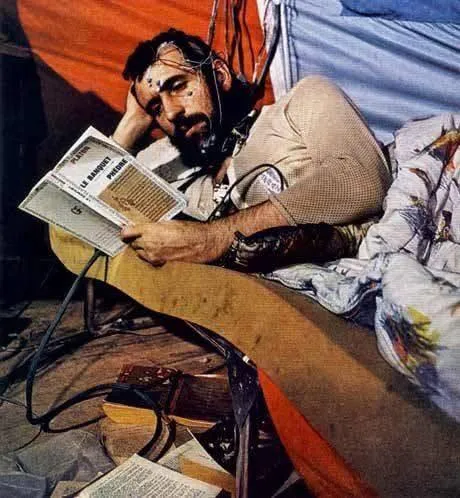Texas Soil, California Births, and the Cost of Service: A Reflection on Chris, McKenna, and the Call to Serve 946

In the photograph, Chris stands with McKenna in his arms, her tiny feet dangling above the earth. Not just any earth, but Texas soil. Though we were living in California at the time, Chris insisted that the first dirt our children touched had to be from Texas. In his mind, that was where they were truly from, no matter what the birth certificate said. Texas wasn’t just geography to him—it was identity, pride, and home.
I still laugh remembering how he half-jokingly asked the hospital staff if they could write “Texas” on the birth certificates, just to make it official. They refused, of course. Our children were, on paper, Californians. But in Chris’s heart, they were Texans through and through. That moment with McKenna was symbolic—a way of rooting our children in something larger than the places the military carried us.
There’s a kind of romantic notion that surrounds service families, especially when we’re young. The uniforms, the deployments, the sacrifices—all of it seems noble, almost heroic, when you’re looking in from the outside. Many of us who marry into it see it as part of a larger love story: not just a partner, but a cause, a calling. There’s truth in that—but also a cost.
Even now, I get a pit in my stomach when people say, “My child wants to serve because of Chris.” For years, I forced a polite smile and murmured something like, “That’s great.” But deep down, I felt torn. Proud, yes, but also anxious. I’ve since stopped pretending. Today, my answer is different. I say, “I hope they pray about it.”
Because service is not something to enter into lightly. I believe with all my heart that God calls some to serve—whether as first responders or in the military. But I also know, firsthand, the cost. That cost isn’t just physical. It isn’t just the ultimate sacrifice of a heartbeat stopped in service. Sometimes it’s the quieter sacrifices, the ones that haunt the years and decades that follow.

The risk, the sacrifice, is what lends nobility to the service life. But nobility cannot erase pain. For some, the cost is losing the ability to live with softness—to laugh without reserve, to give kindness freely, to radiate joy the way they once did. Violence changes people. It doesn’t leave when the uniform comes off.
When I look at that picture of Chris with McKenna, I see his youth. He had seen some combat, yes, but he was still at the beginning of the long road of war. His face carried a mix of strength and softness then, untouched by years of relentless battle. Ten years later, his face would hold the weight of hand-to-hand fights, alleyways choked with gunfire, dying soldiers pulled from chaos, and endless days where survival came at the cost of another’s life.
Those are not the stories I usually share. I talk about Chris’s kindness, his goodness, his heart—because those were his truest self. But tucked away inside me are the memories of the other things. The hardness, the edges sharpened by years of combat. The parts of him shaped by necessity, not by choice. Those things left marks—on him, on me, on all of us who loved him.
Violence is not noble, though service can be. War is not glorious, though courage can be. The truth is that the darker parts of service, the parts you don’t frame in pictures or tell at ceremonies, are the ones that leave the deepest marks. They are the ones that shape marriages, families, and souls long after the battles end.
So when I hear someone say they want to serve because of Chris, I urge caution. Not because I want to diminish his legacy, but because I want to honor the truth of it. Service is sacred. It should never be pursued out of a hunger for glory or recognition. It must be entered into with prayer, with humility, with the clarity that comes from knowing God Himself is calling you.
If it is God’s call, answer. If it is your own desire for recognition, I beg you to reconsider. Service that springs from pride or ambition cannot withstand the cost. Only service rooted in a calling to glorify God will endure.
That is my advice to anyone who feels the pull of service: pray. Pray with seriousness. Pray for clarity. Pray for the strength to accept the cost if it is truly where God is leading you. And if He is not, consider how else your noble heart might serve. There are endless ways to give yourself in service—teaching, healing, leading, advocating—that do not demand the same brutal price.
Chris never regretted serving. He believed, deeply, that giving one’s life for others was the highest form of love. He lived that belief to the very end. But even he knew the toll. He carried it in his body, his spirit, and his marriage. We both did. The battlefield leaves no one untouched.
When I think back to that moment with McKenna’s feet pressed into Texas soil, I see both the pride and the foreshadowing. Pride in roots, in identity, in the values that shaped Chris and, by extension, our children. But also the shadow of what service would eventually demand—not just from him, but from all of us who stood beside him.
The photo is tender, but it carries weight. It reminds me that service is more than uniforms and salutes. It is about hearts given, sometimes broken, sometimes lost. It is about joy, yes, but also about pain too deep for words. It is about the marks left on families, both seen and unseen.
For those considering service, let this picture be a lesson: love your country, yes. Honor the call, yes. But pray first. Ask if this is truly the path God has for you. Because only His call can sustain you when the cost comes due. And it will.
As for me, I choose to share both truths: the goodness and the softness of Chris, but also the scars war left behind. Both are part of his story, part of our story. Both deserve to be remembered.
And so, when I am asked if I encourage service, I answer with honesty. Yes, but only if God calls you. Not for glory, not for pride, but for Him. Because only then will your service carry both the nobility of sacrifice and the endurance of faith.
That is the soil Chris wanted for our children—not just Texas soil, but soil rooted in truth, faith, and the willingness to serve for the right reasons. And that, more than anything else, is what I pray they carry with them.
The Man Who Bent Time: Michel Siffre’s Descent Into Darkness 213


In 1972, a French geologist named Michel Siffre descended 440 feet beneath the surface of Texas into a cave. He carried no clock, no calendar, no sunlight to guide him. His goal was audacious, even reckless: to live in total isolation for 180 days in absolute darkness. What he uncovered in that cavern was not just a scientific revelation—it was a confrontation with the very nature of time, and the fragility of the human mind.
Siffre had long been fascinated by the connection between biology and time. He wanted to know: what happens when humans are cut off from natural cycles? How does the brain measure time when deprived of external cues? To find answers, he volunteered to become both the subject and the prisoner of his own experiment.
At first, he relied on instinct. He ate when hungry, slept when tired, and tried to create some semblance of routine. But with no light to mark the rising and setting sun, time itself began to dissolve. Hours stretched and warped. Days slipped by unnoticed. He hallucinated shadows that weren’t there. He heard voices in the silence. Paranoia gripped him, and he became convinced that someone else lurked in the darkness.
What Siffre didn’t know was that his team above ground was watching, logging every movement and comparing it to real time. By the second month, the disconnection was profound. He believed 24 hours had passed when in reality, nearly 48 had gone by. His body, untethered from the sun, invented a new rhythm—36 hours awake followed by 12 hours of sleep. To scientists, this was shocking evidence that humans carry an internal clock independent of the external world. To Siffre, it was a slow slide into madness.
The psychological toll was devastating. He forgot words mid-sentence. His emotions lurched unpredictably from elation to despair. He spoke to insects for company, clung to the sound of his own voice, and described the silence as a weight that crushed him. By the time he was pulled from the cave after 180 days, he believed only 151 had passed. Time, once steady and unquestioned, had slipped through his mind like sand.
The cost was permanent. Siffre suffered lasting memory loss and lingering psychological scars. He called the cave “an endless night” that haunted him for decades. And yet, he returned to the darkness in later years, repeating isolation experiments to expand on his findings.
What he discovered reshaped science. His work revolutionized circadian rhythm research, influenced space agencies preparing astronauts for the isolation of long missions, and shed light on the psychological toll of solitary confinement. Siffre proved that time is not only an external reality, measured by clocks and calendars, but also an internal creation of the mind. Deprive the brain of cues, and it will create a new universe of time—one often at odds with reality.
But Siffre’s story is more than scientific data points. It is a testament to both human resilience and vulnerability. In seeking to uncover the mysteries of time, he revealed something even more profound: that isolation reshapes the very fabric of our thoughts, our memories, and our sense of self.
He emerged not as the same man who had entered, but as someone forever changed by the realization that time is not fixed—it bends, slips, and shatters under pressure. His sacrifice remains one of science’s most haunting experiments, echoing a question that lingers still:
Is time something we live within, or something we create?
Michel Siffre’s descent into darkness suggests the answer is both. And that the mind, fragile and vast, holds within it the power to stretch or dissolve the very hours that shape our lives.





